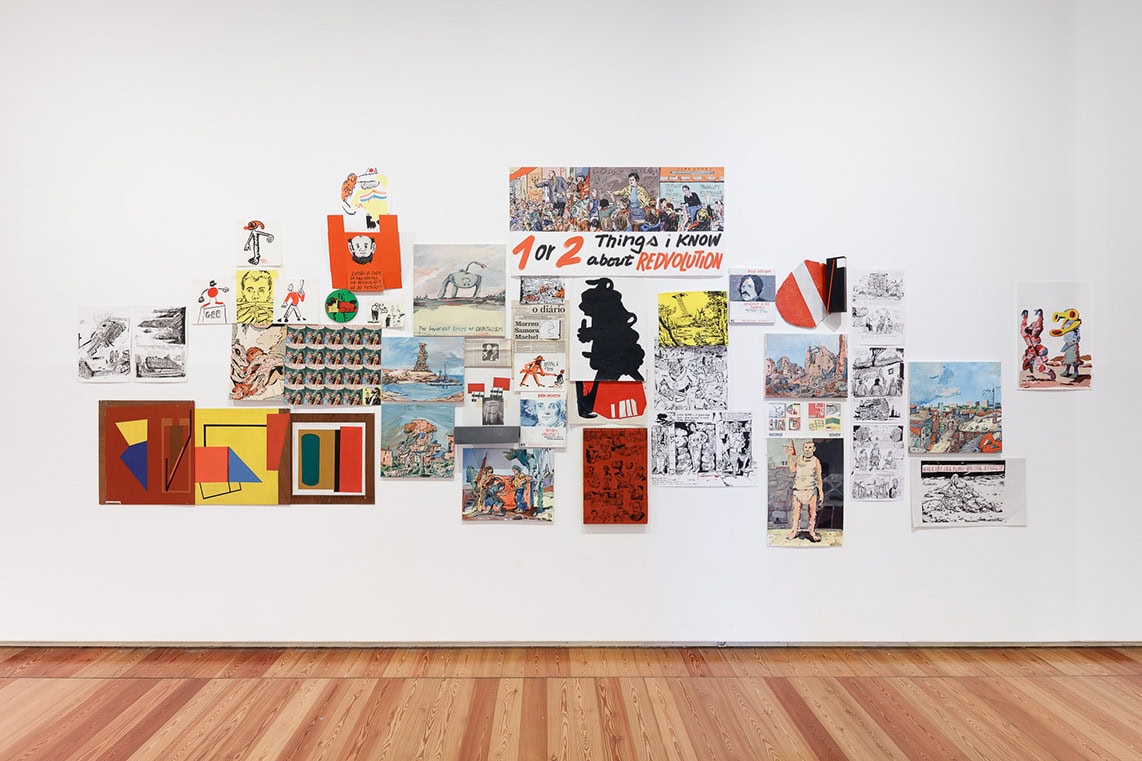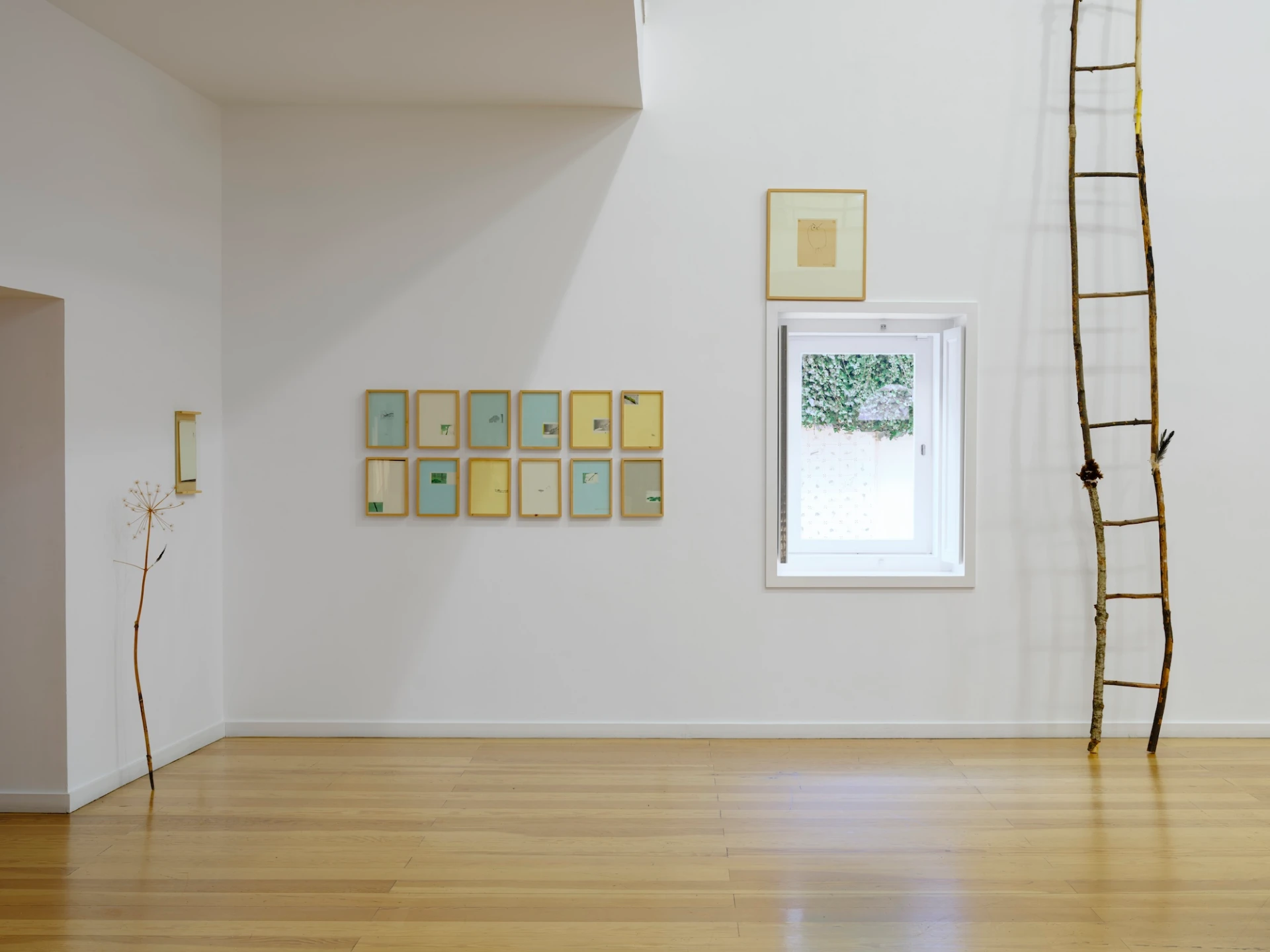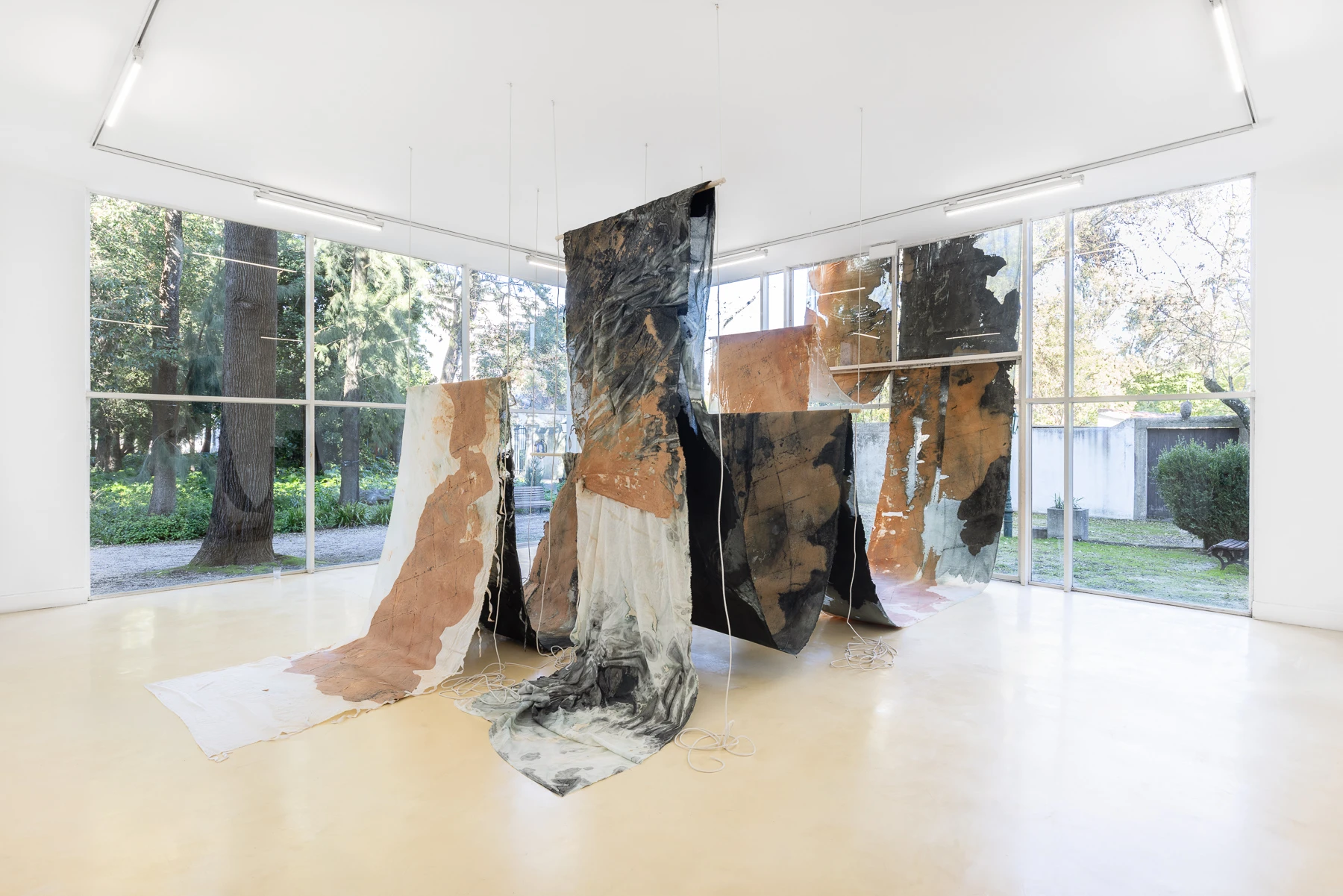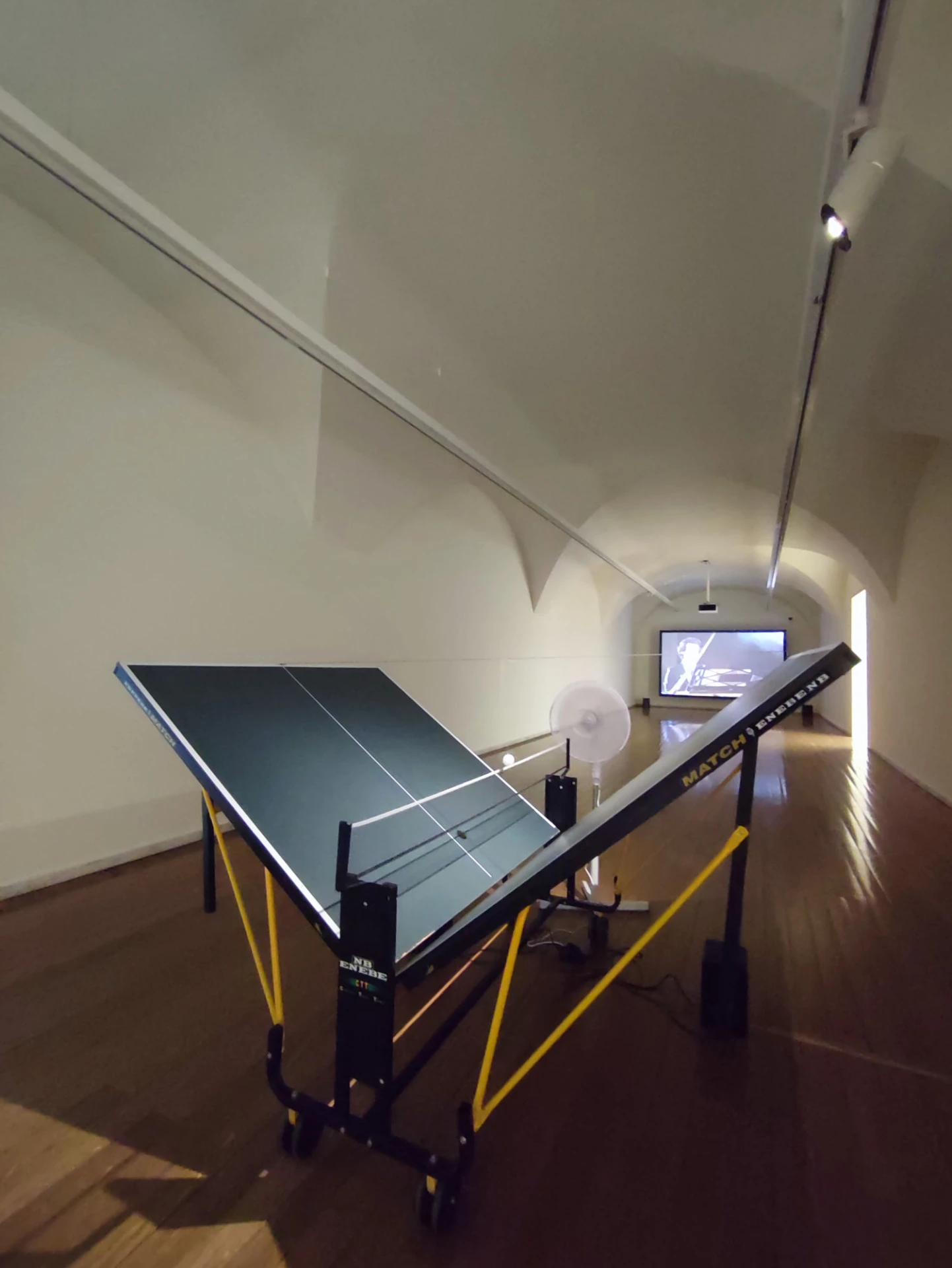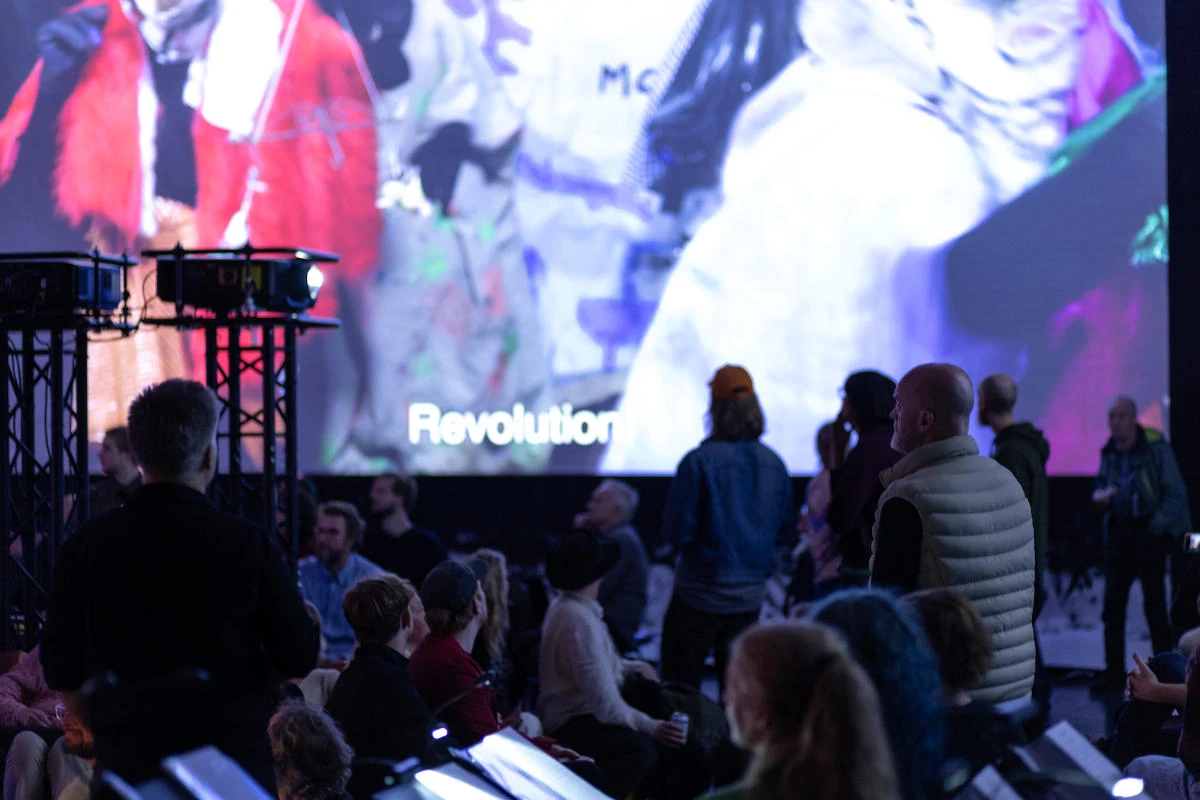In The Vegetarian, Han Kang narrates the story of a South Korean woman rebelling against patriarchy, society and life. Hampered by the domesticity to which Korean culture forces her, that of a dutiful wife and mother, the main character starts with a small revolution: she becomes a vegetarian in a family landscape that delights in meat.
At a different point, emancipated and estranged from her family and husband, from that fusion and confusion that supersedes the subject and builds other foreign identities within us, the woman forges a loving and sexual friendship with an artist. The second minor revolution takes place during one of these romantic encounters: she invites the artist to paint her naked with floral motifs – petals, leaves, stems and branches covering her skin, from her feet to her face. This character is an emanation of plant sentience, loosely performative, loosely fictitious, but nonetheless powerful – lying there on the ground, motionless, like the trunk of an immovable century-old tree.
The third revolution – and the most tragic – involves a stoic and absurd volition – pathological, perhaps – that only those who understand the world’s dissolution, the breakdown of life and the eschatological truth of existence could grasp or perceive. The woman turns into a vegetable – or, as in clinical pathology, willingly surrenders to a vegetative state: she stops eating, and drinking, retreats to the forest, and stays there, under a tree, leaning against it, sensing the rustling of the leaves, becoming a human extension of a cellular, phytological being, sticking to that tree’s way of being and feeling. She could die under it, be pulled through the soil and subsoil, veiled by plant roots, which then wrap her in a neuralgic net of mycelia, fungi and lichens. Faeces and urine, blood and uterine flows become a divine gift for this tree, more divine than a god, more divine than God. Her human and animal life would surrender to the zero of cosmic nature.
(Was it really like that? Have I made it up or reinterpreted the author’s words, changing the ending to suit me better? It does not matter. It just sounds good. All that matters is the profound green, mouldy, fungal wound it tore open in me. A vaginal tear in my chest, riddled with plants and branches and worms and dead leaves).
Marisa Benjamim’s Resilient Gardens resembles this novel, albeit with nothing directly to do with it. After this short literary foreword, one can suddenly picture the ghost of a woman to whom Kang has given voice through the eyes of others. There is simply a perspective on nature that sometimes, in its contradictions and complexities, brings together viewpoints, experiences and hyperobjects (so vast, large and extended in time that only science and data can glimpse it) that spark debate and engage a community for this purpose.
Benjamin’s practice is deeply connected to the place and the people inhabiting it. There is a direct tie to a culture and a society in an attempt to find an object, a construction, or an idea for artistic output. The peripatetic wandering through forests, fields and cities provides a creative outlet, analysing the flora, and experiencing its tactility, flavour, knowledge and physiognomy.
Viseu – its parks, historic streets, gardens and woods – was the territory Benjamim worked in for Resilient Gardens, as part of a residency with the VNBM project. The blooming pansies in the flowerbeds, an old oak toppled by the powers of nature and disease, the region’s beech trees and other tree species, the moss, the granite outcrops – all of this was featured in the exhibition, whether from a chromatic or engraving standpoint or from a sculptural or botanical one. But perhaps the most diaphanous sensuality – the fragrance and flavour – will have the most impact on viewers. In this breakdown of the plant territory, the community is asked to reflect on its natural surroundings, on the memories that flavour – that Proustian phenomenon – unleashes in everyone, with each spray, squirt or aspiration, and how it makes and combines a joint act of experience.
Inside the ecology Resilient Gardens calls for, a whole economy of knowledge, businesses and entrepreneurs are brought together in the same rapport, combining catering and bakeries in a tasting performance which the land – that land – provides. Everything is understood not from an anthropological perspective, but from a plant one. This is not a romanticised perception of nature. Instead, it comprises a cosmopolitics fraught with tensions, fertile but also lethal; delicious but also poisonous. The land has been a capital since Mesopotamia. We do not have that understanding here, but a different one, perhaps more local and of small transformations. This is not us against nature; this is not us within nature. It is us with Nature.
Rings on the trunks are reminders of a tree’s life, of the weather, of time. They are now dead objects bearing witness to a wider and more inaccessible life than that of humans. Their matter etches in itself the march of the Anthropocene, of modern accelerationism, of global warming. If we were talking earlier about the data that formed hyperobjects, we have several of them here – stenographers of a reality that the eye cannot see and the touch cannot feel: circles and circles, hypnotic, hard to count, whose shape and accounting are lost in that oxymoron of a finite infinity or vice versa. In the vegetal stillness to which Nature has voted them – the same that Kang voted to the female character and heroine -, the trees capture the pain that overwhelms us.
One can hardly decide which of the different definitions of Nature Marisa Benjamim and curator Sandra Oliveira consider to be closest to reason or reality – Dionysian Nature, Anthropocene and Mesopotamian Nature, or Romantic Nature. Maybe this should not even be a worry in the field of art and aesthetics, where there is enough room for contradiction, delirious speculation and innocence. All we know is the profound respect and shared feeling that permeates the gestures and actions in this exhibition, the thoughtfulness of Benjamin’s research and the openness to strangers who have lent him their knowledge, more or less scientific, more or less ancestral.
Marisa Bejamim‘s Resilient Gardens is on show at the VNBM | Arte Contemporânea space until June 30 in Viseu. Curated by Sandra Oliveira and with Paulo Barracosa providing scientific assistance.
